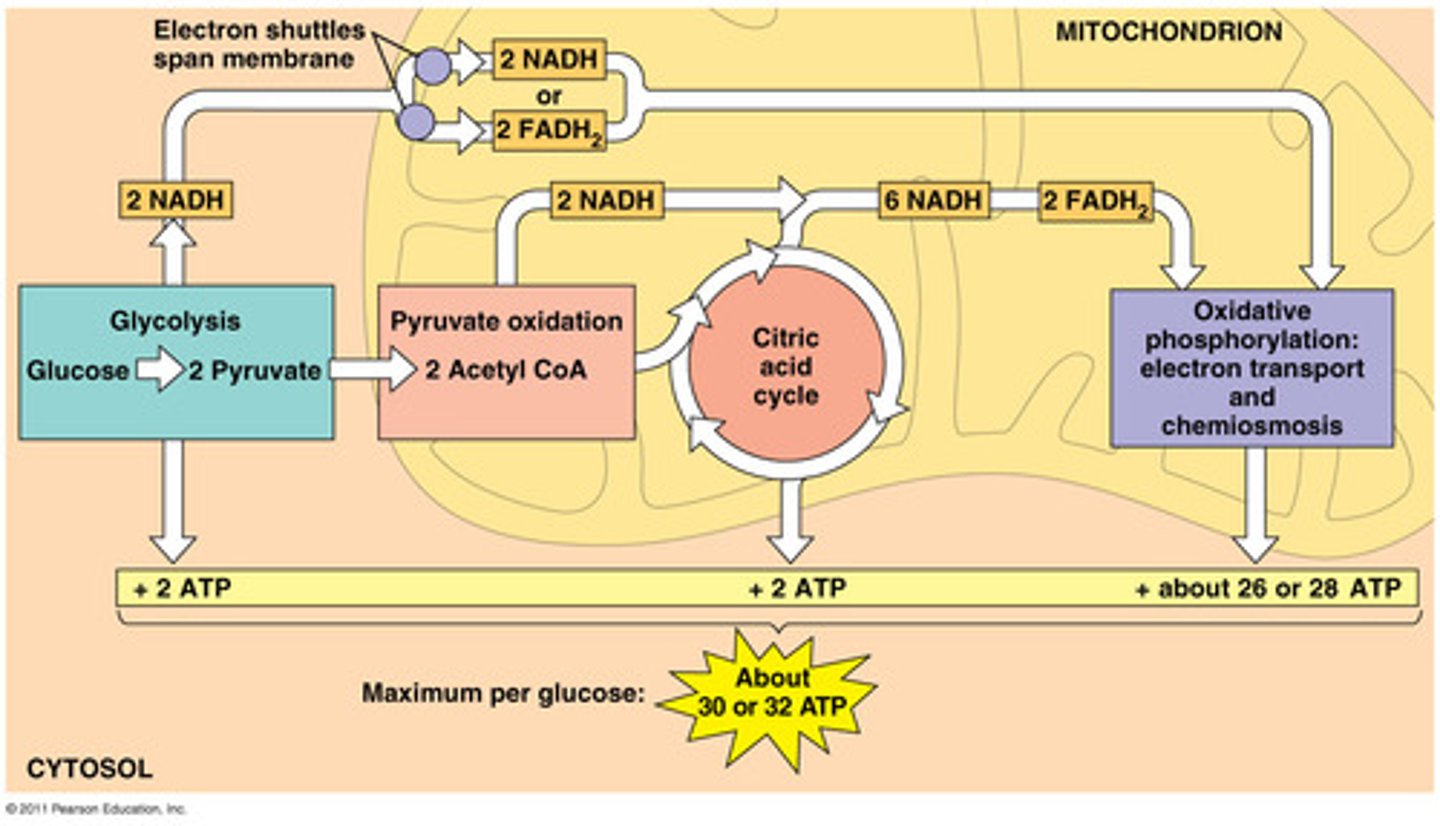Week 7B: Energy Metabolism (Glycolysis)
1/30
There's no tags or description
Looks like no tags are added yet.
Name | Mastery | Learn | Test | Matching | Spaced |
|---|
No study sessions yet.
31 Terms
How does molecules like ATP,GTP,UTP,CTP store and release energy?
Stored in phosphate bonds (3 phosphate = LOTS of energy)
Energy is released when enzymes break down those bonds, releasing energy required for cellular reactions
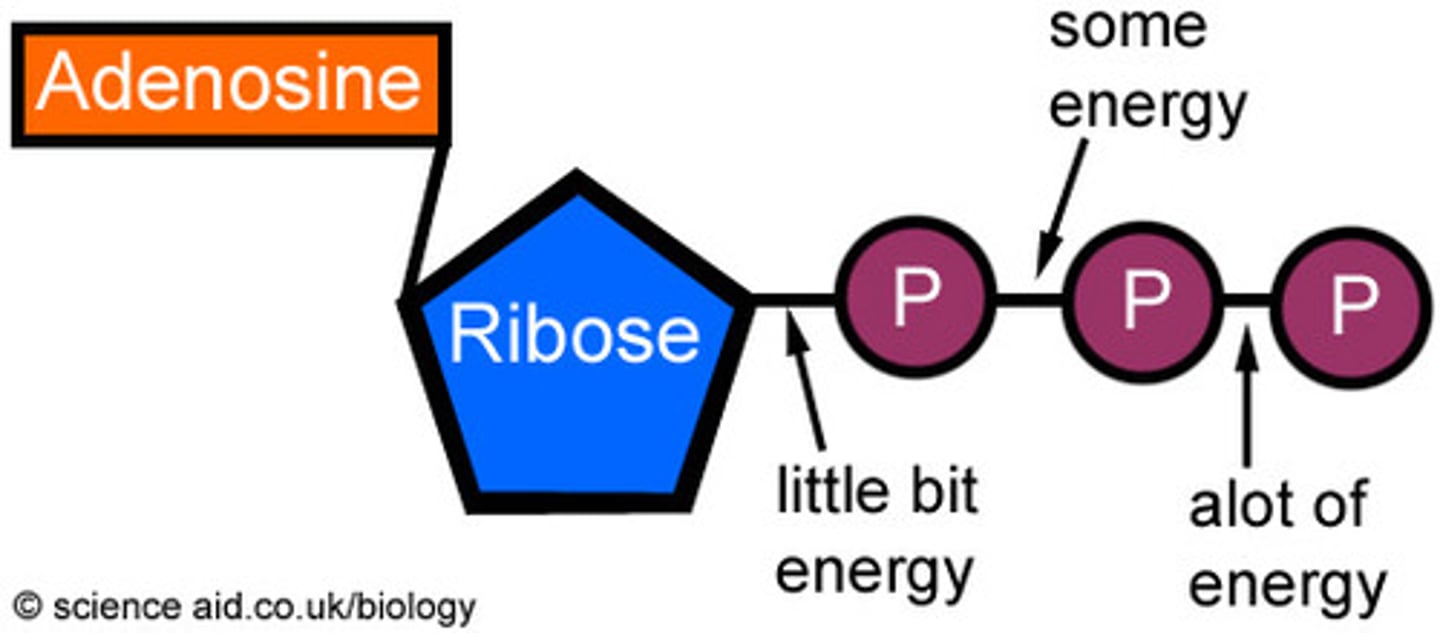
What is the energy currency of the cell?
ATP
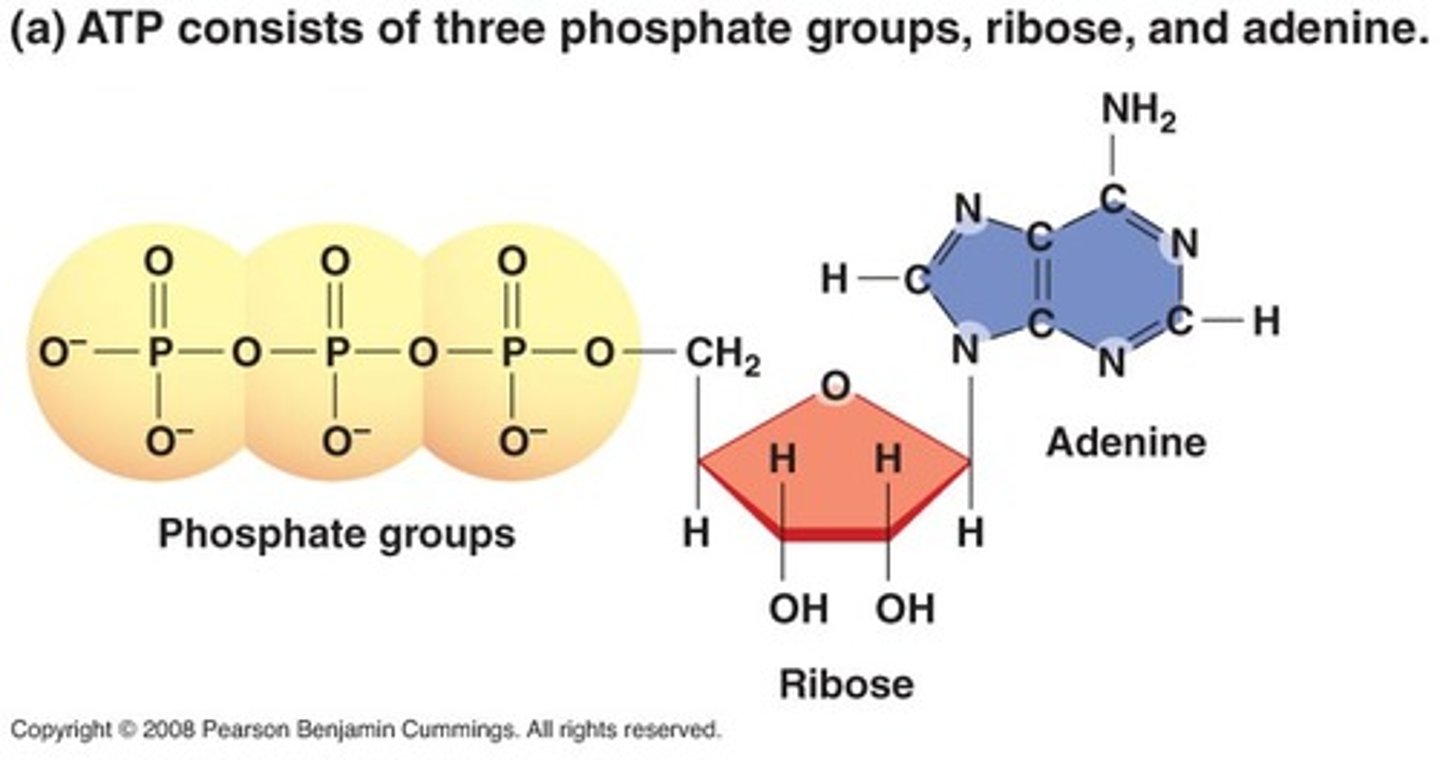
Why is ATP generation especially important for the heart?
Each heartbeat uses 2% of the heart's available ATP, meaning that loss of ATP production in the heart would result in all of it's ATP being lost within less than a minute, resulting in a heart attack
What occurs when electrons are moved within a cell?
Energy is being moved
What are 3 electron carriers present in the cell?
NAD+/NADH
NADP+/NADPH
FAD+/FADH2
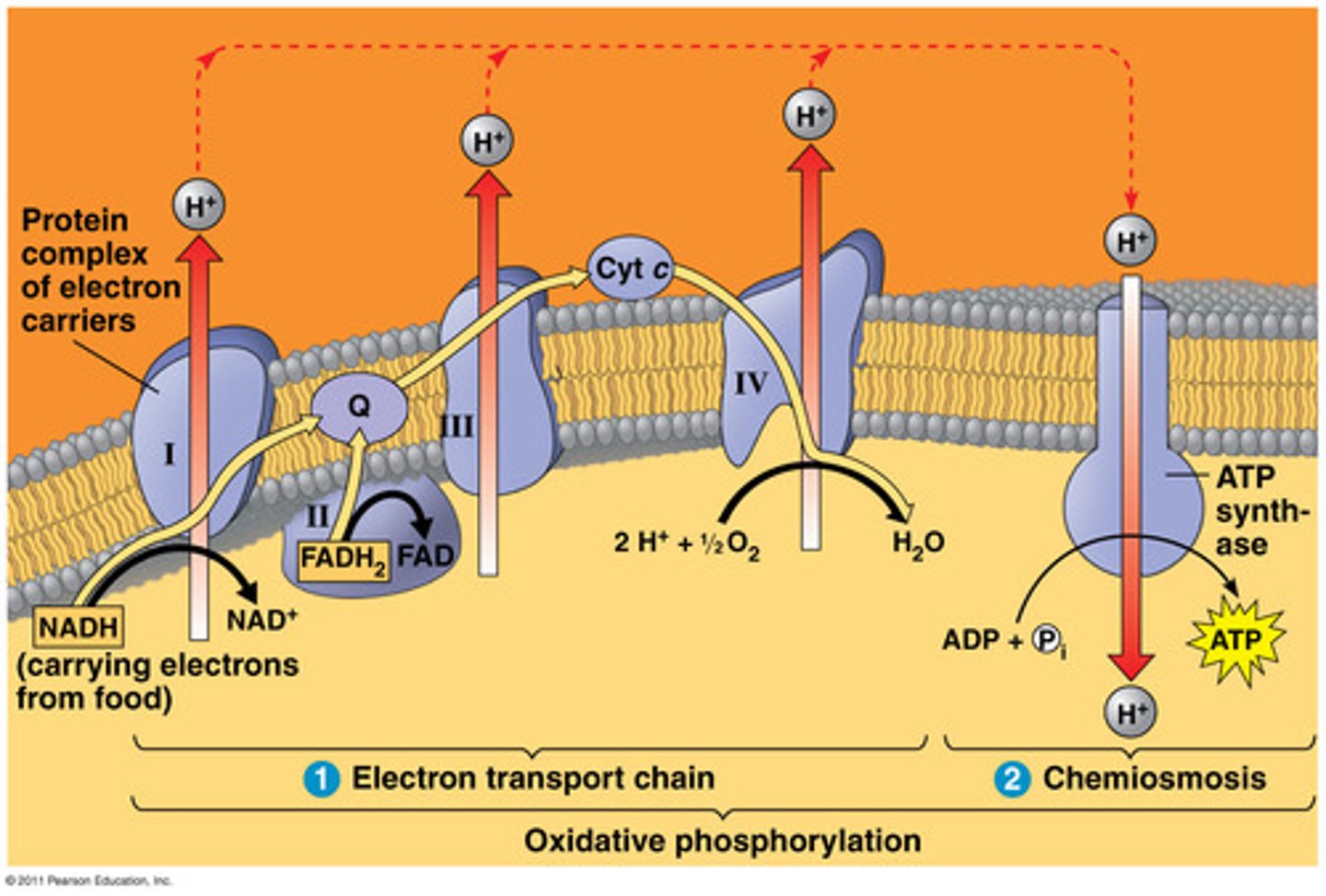
What type of reaction occurs when NAD+ gains an extra electron via H+, converting into NADH?
Reduction -> Gain of electron (leo says GER)
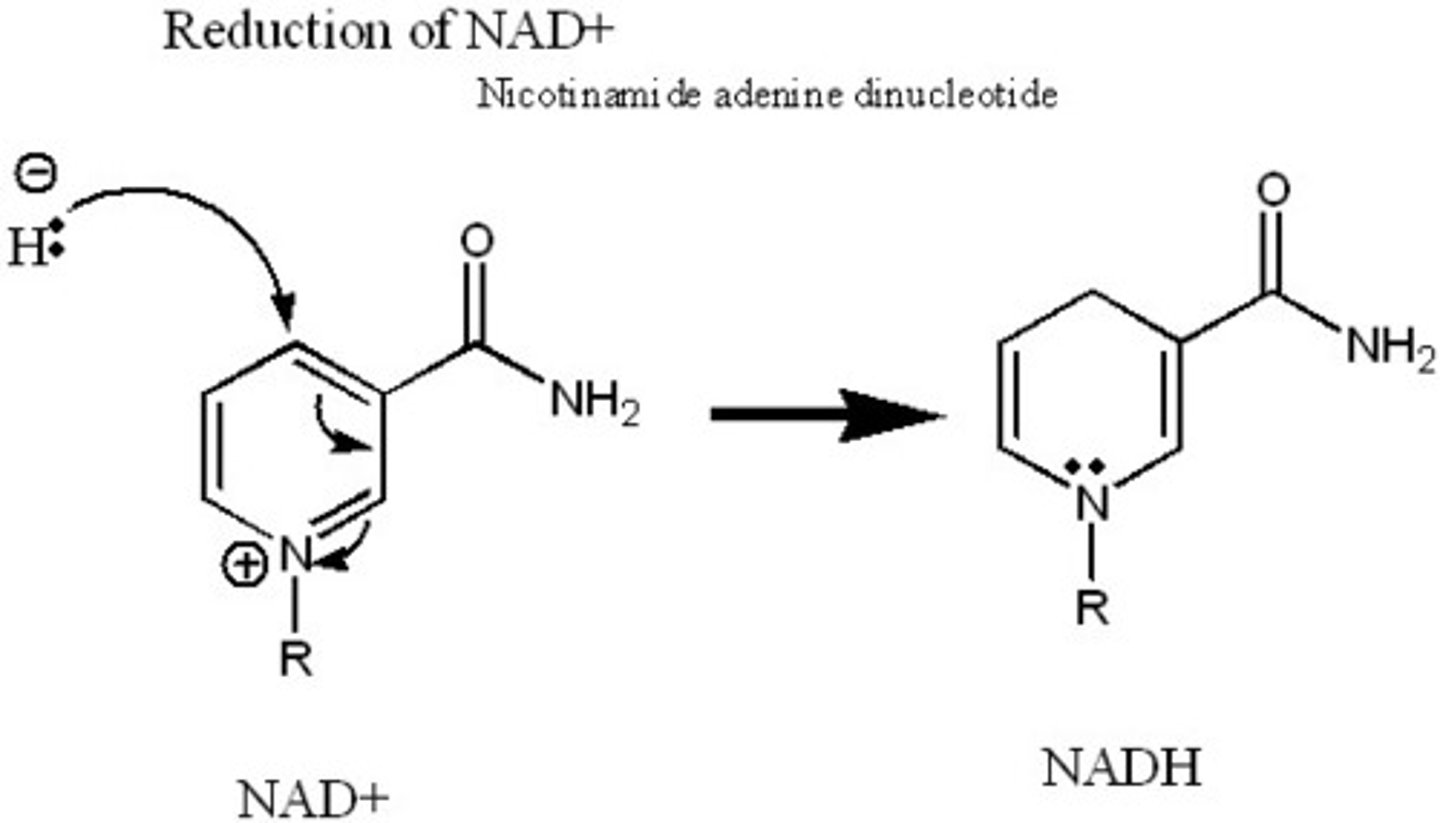
What type of reaction occurs when NADH loses an electron via H+, converting into NAD+?
Oxidation -> Loss of electron (LEO says ger)
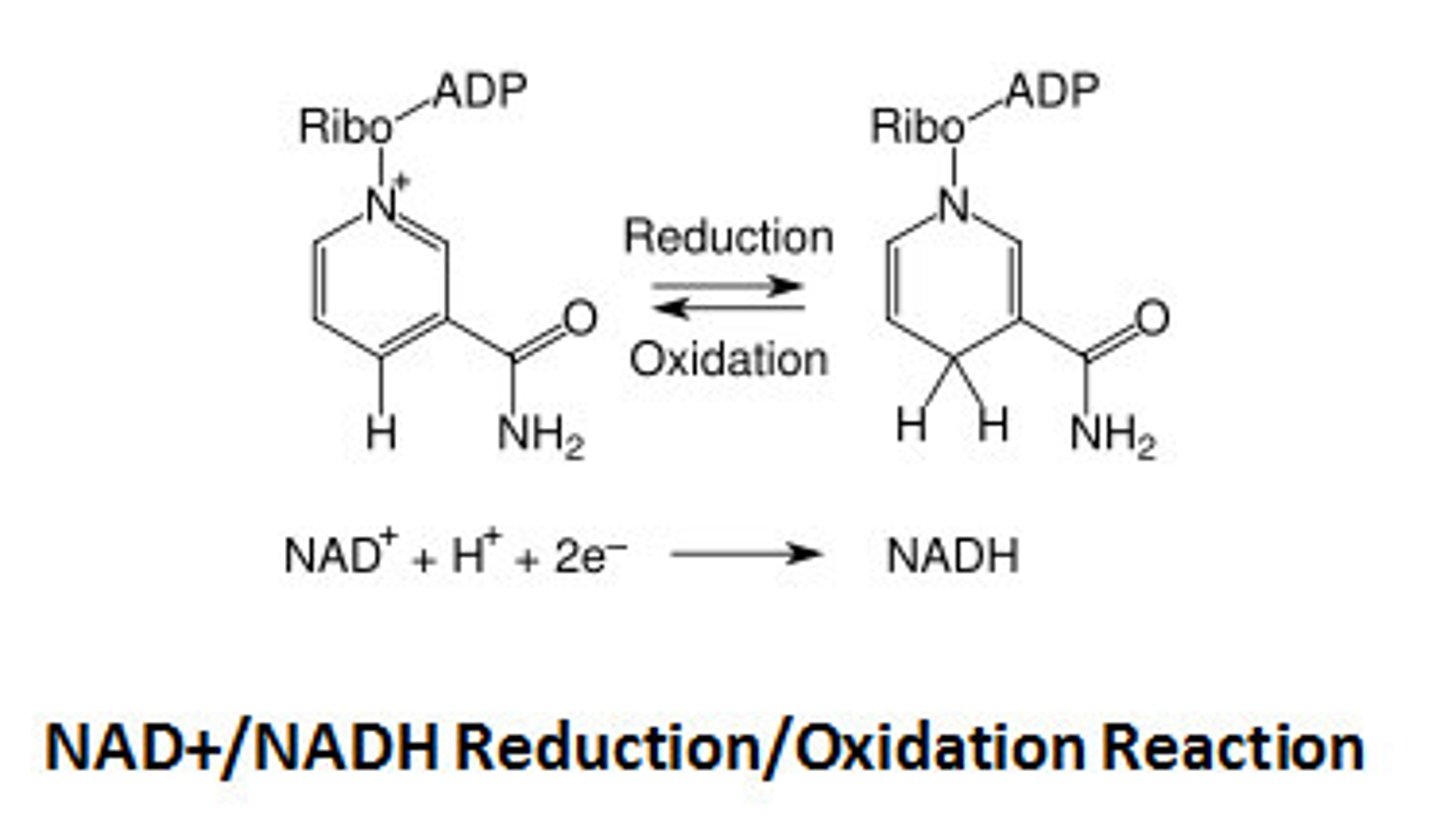
What step of energy generation is present in both anerobic and aerobic cells?
Glycolysis
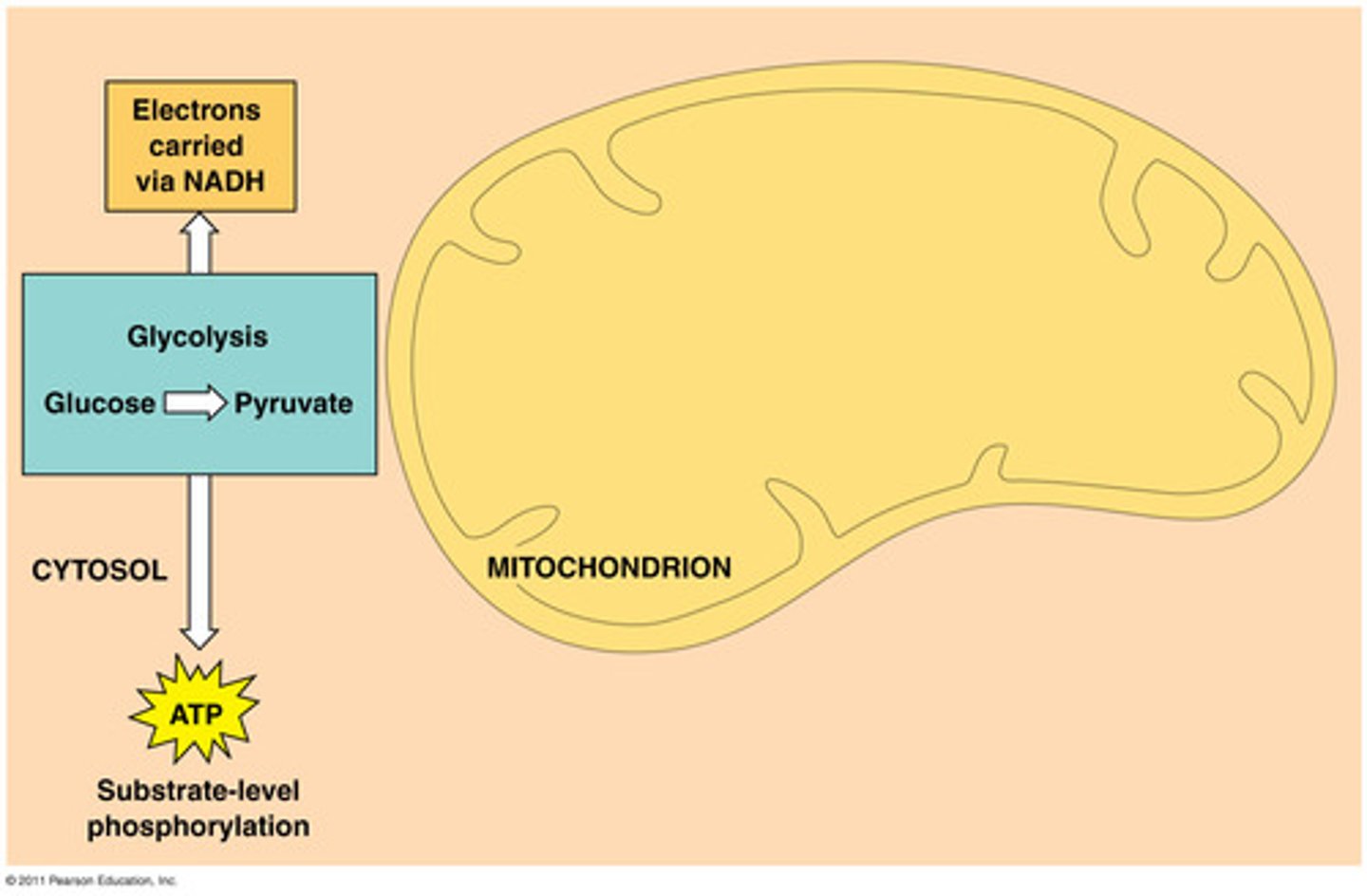
Does glycolysis require oxygen to work?
No, occurs in both anerobic and aerobic cells
Where does glycolysis occur?
In the cytoplasm
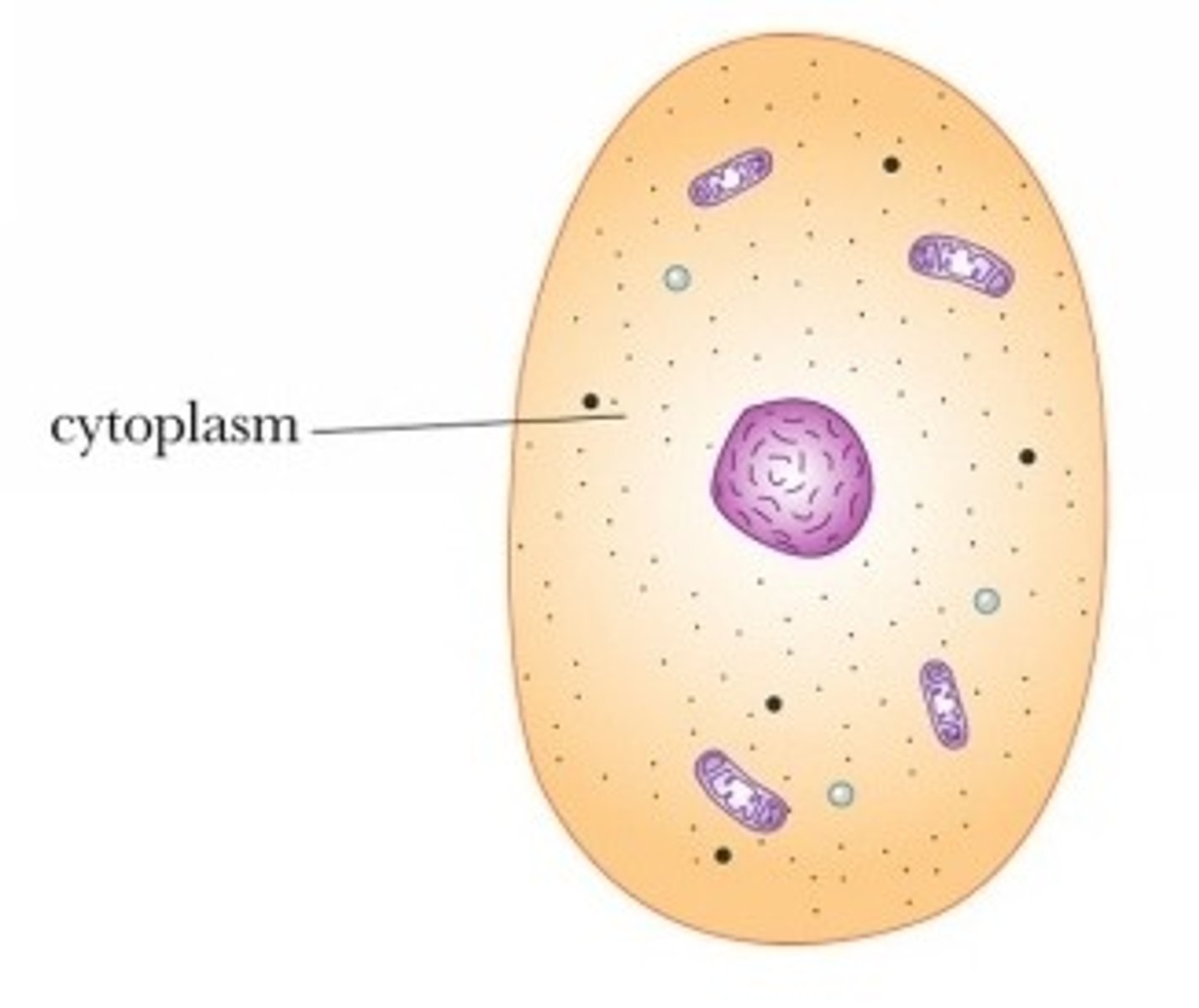
What molecules are used during glycolysis?
->Glucose molecule (other monosaccharides enter as different reactants at different points of glycolysis)
->2 ATP
->2 NAD+
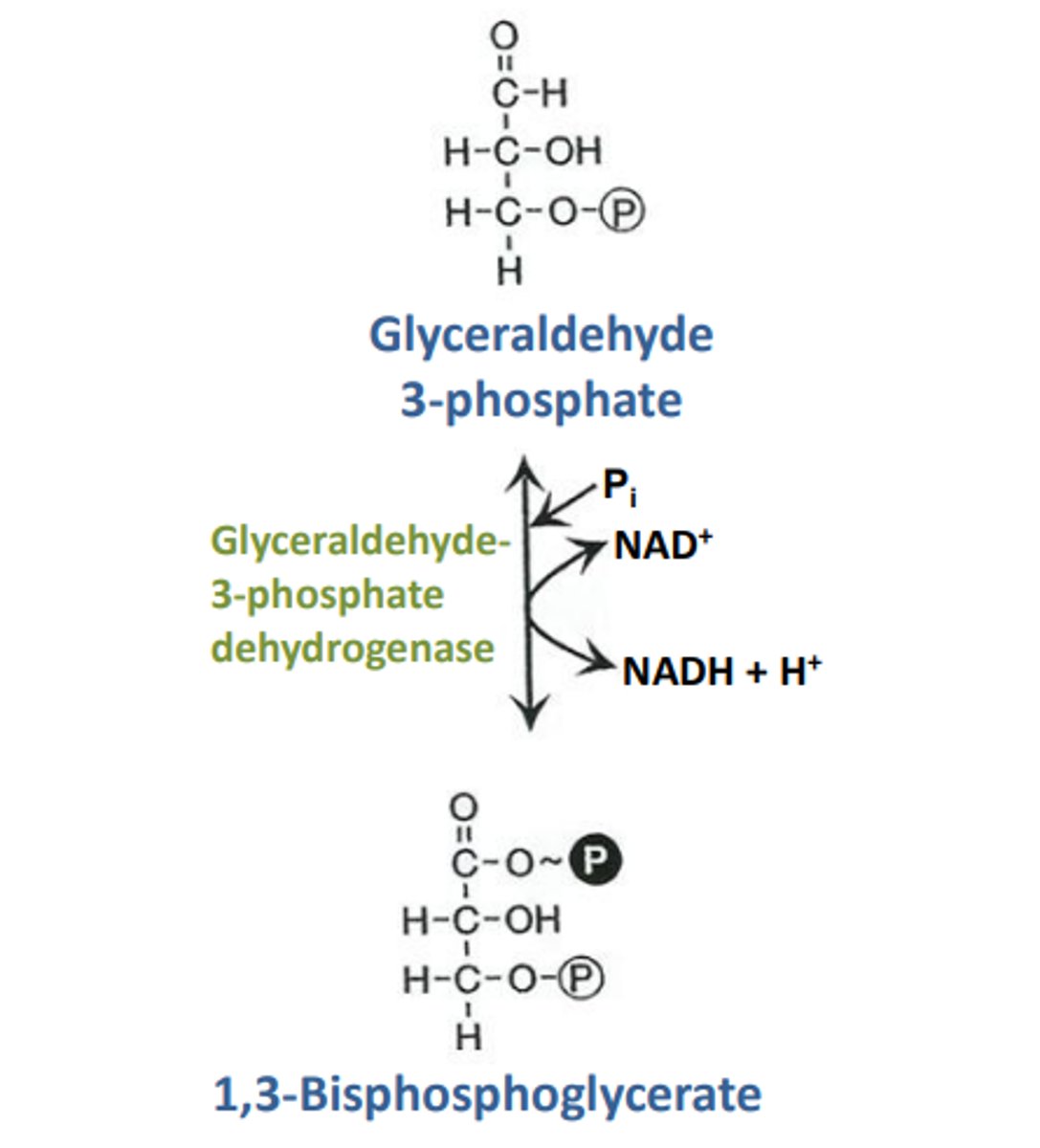
What molecules are produced during glycolysis?
->Pyruvate
->4 ATP
->2 NADHs

What process is responsible for producing ATP during glycolysis?
Substrate-level phosphorylation (without use of electron carriers)
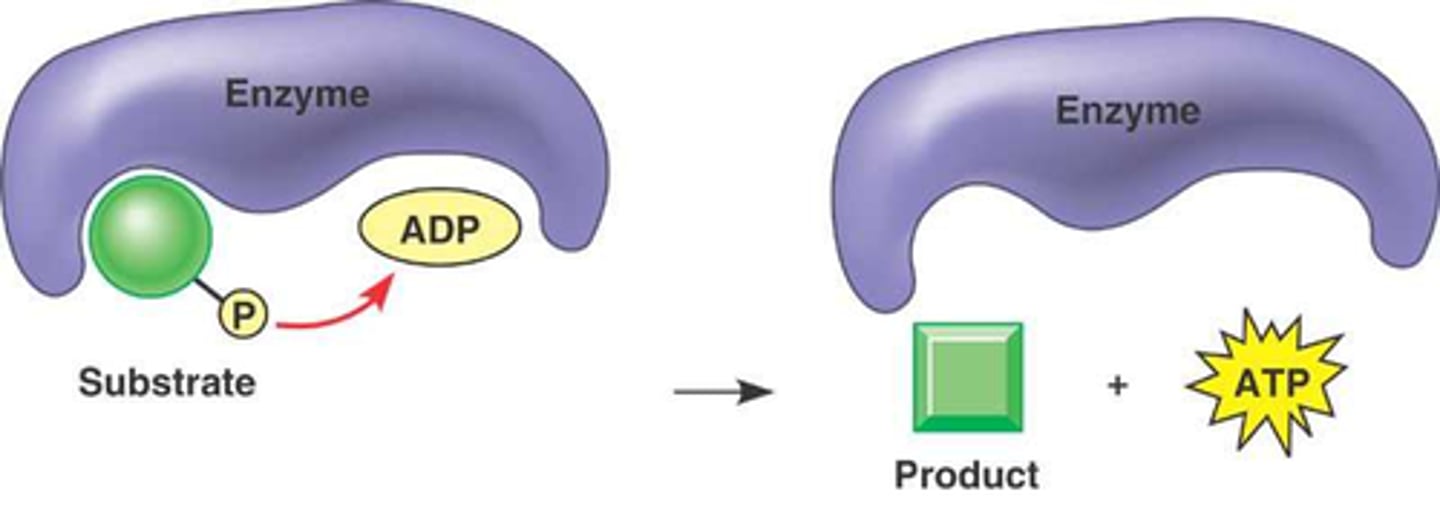
What process is responsible for producing ATP during the Electron Transport Chain?
Oxidative phosphorylation (ATP produced via oxidation of electron carriers)
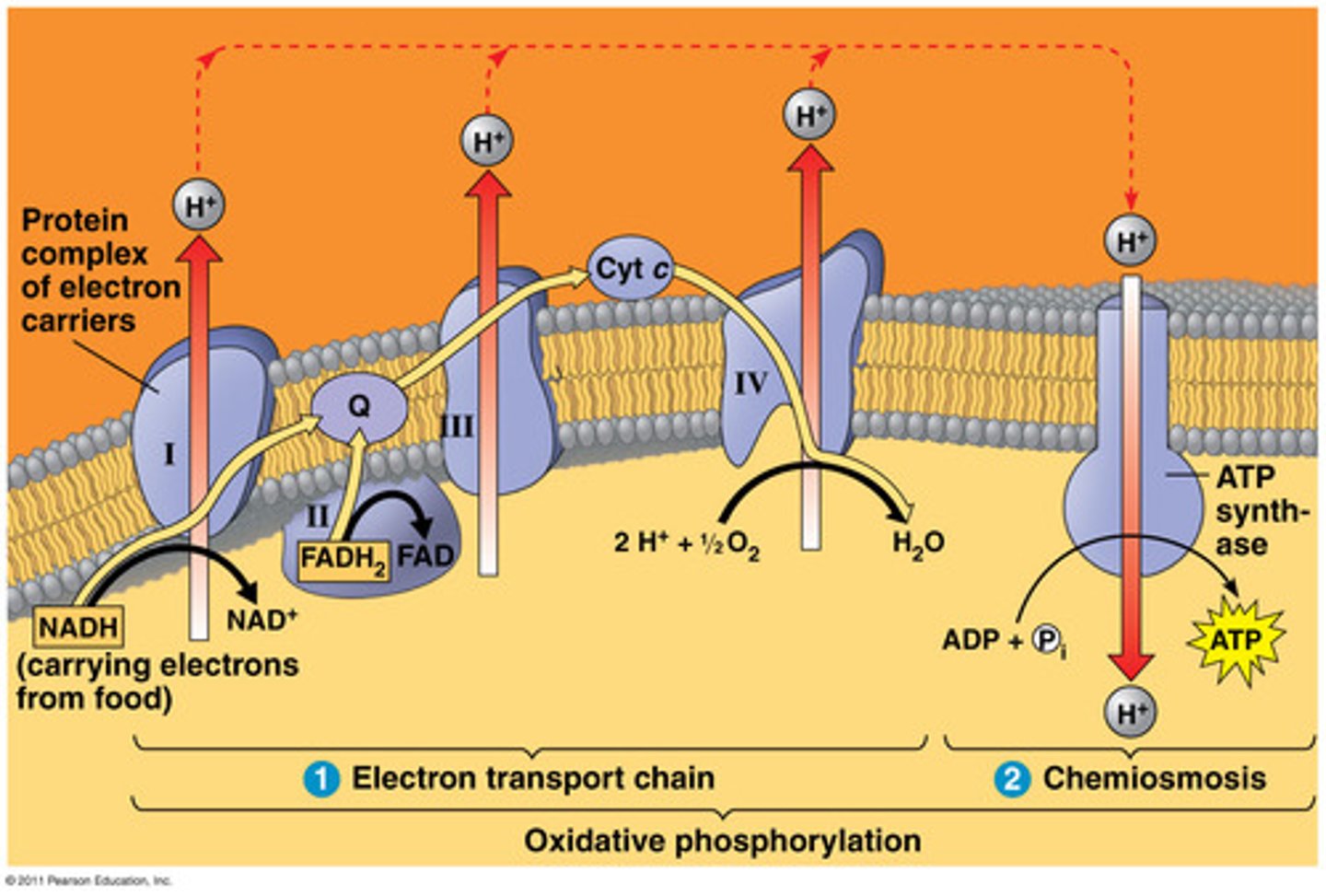
What is the first step of glycolysis?
Glucose is converted into glucose-6-phosphate by using 1 ATP, results in the glucose being trapped in the cell (cannot be exported out of cell)
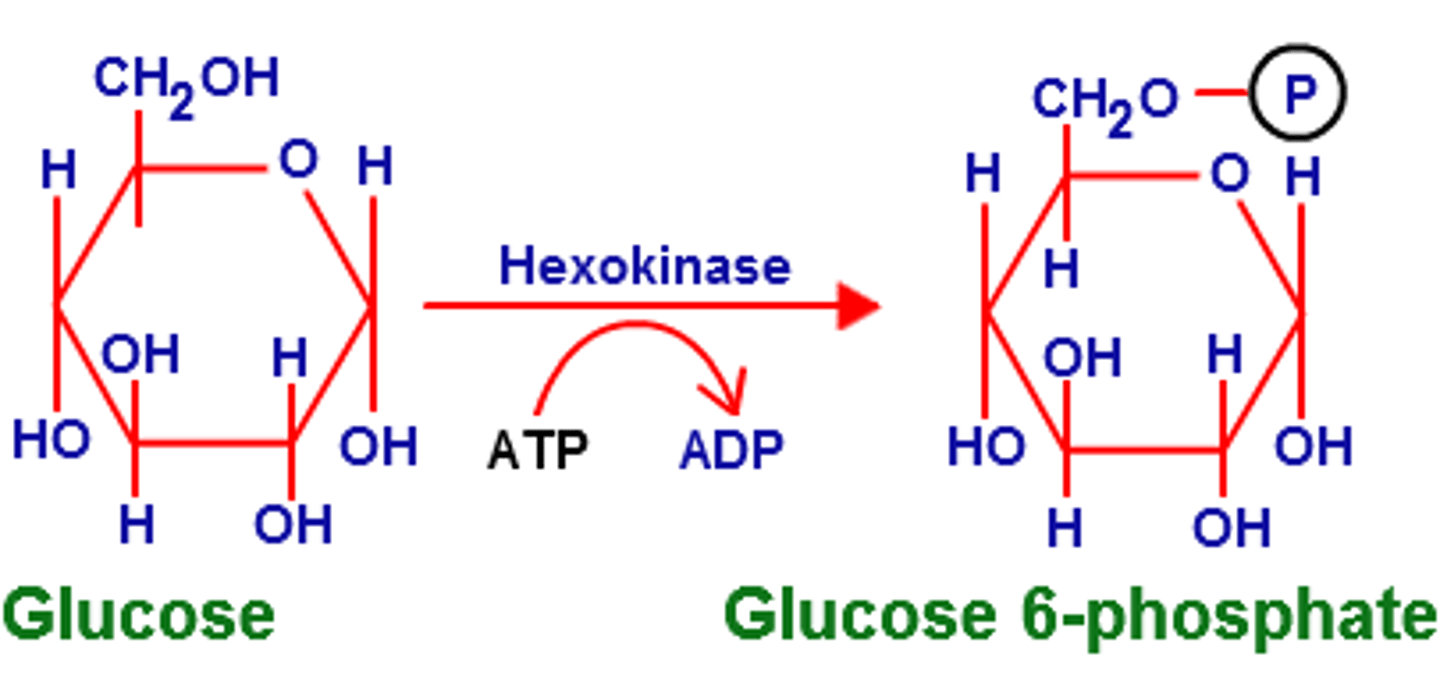
Which cells can reverse the first step of glycolysis?
Liver cells (stores glucose as glycogen, can release glucose during low levels of glucose)
Not muscle cells since they store glucose exclusively for themselves
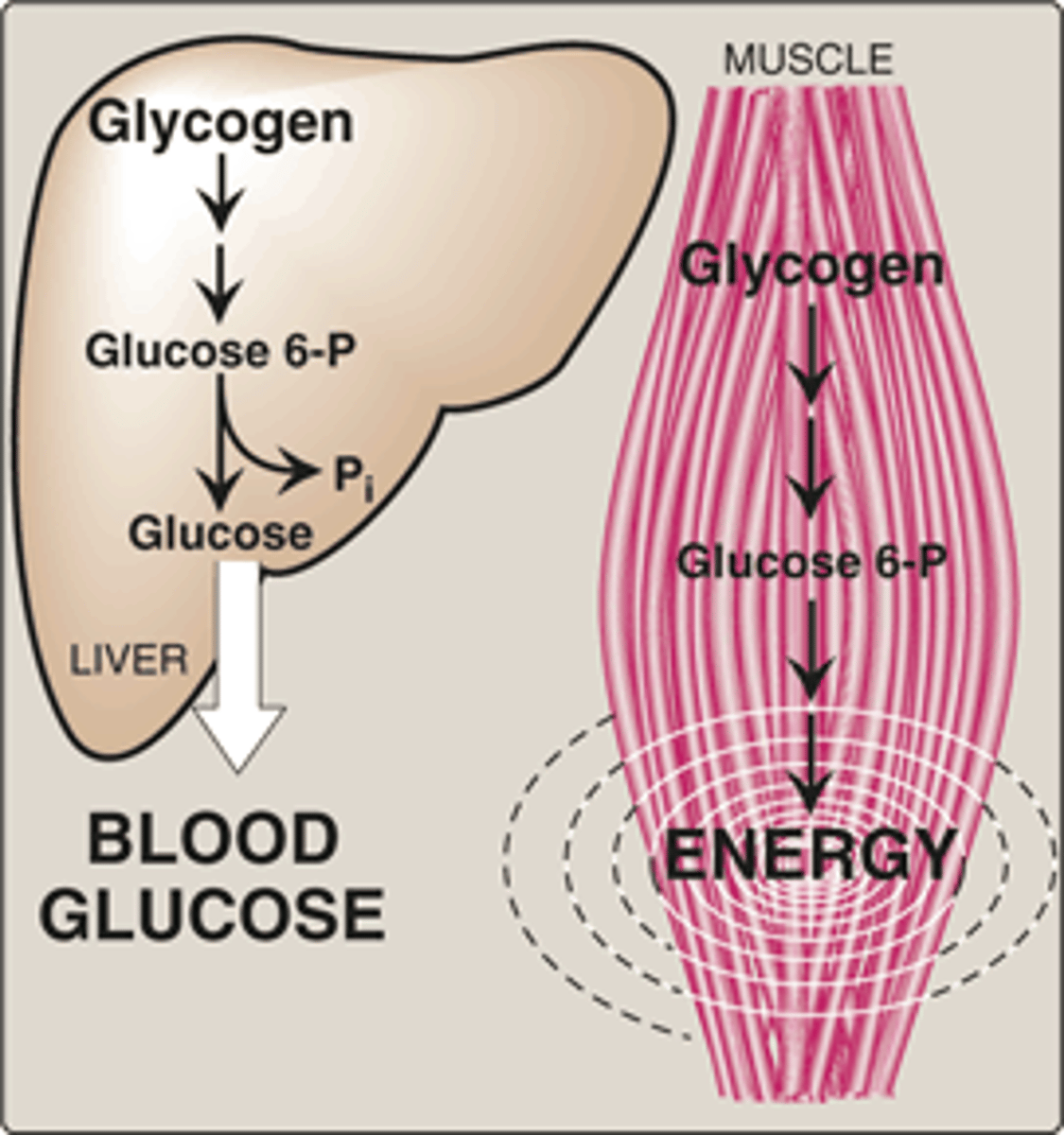
What 3 roles does glucose-6-p have in the cell?
1. Generate energy (continue through glycolysis)
2. Stored as glycogen in the liver and muscle cells for later use
3. Used to make new molecules
What intermediate is fructose converted to if it is used during glycolysis?
Glyceraldheyde-3-phosphate
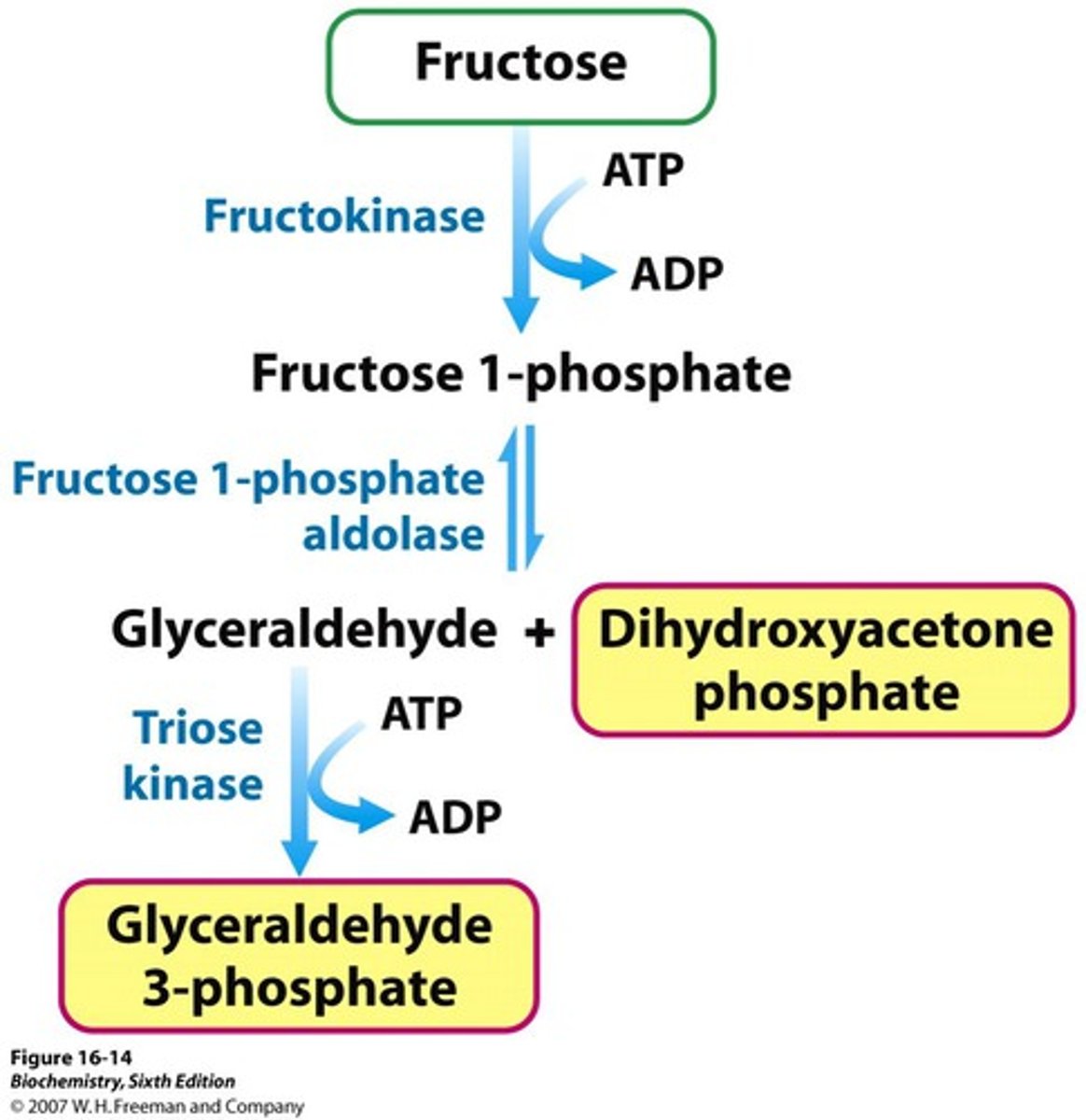
What intermediate is galactose converted to if it is used during glycolysis?
Glucose-6-phosphate
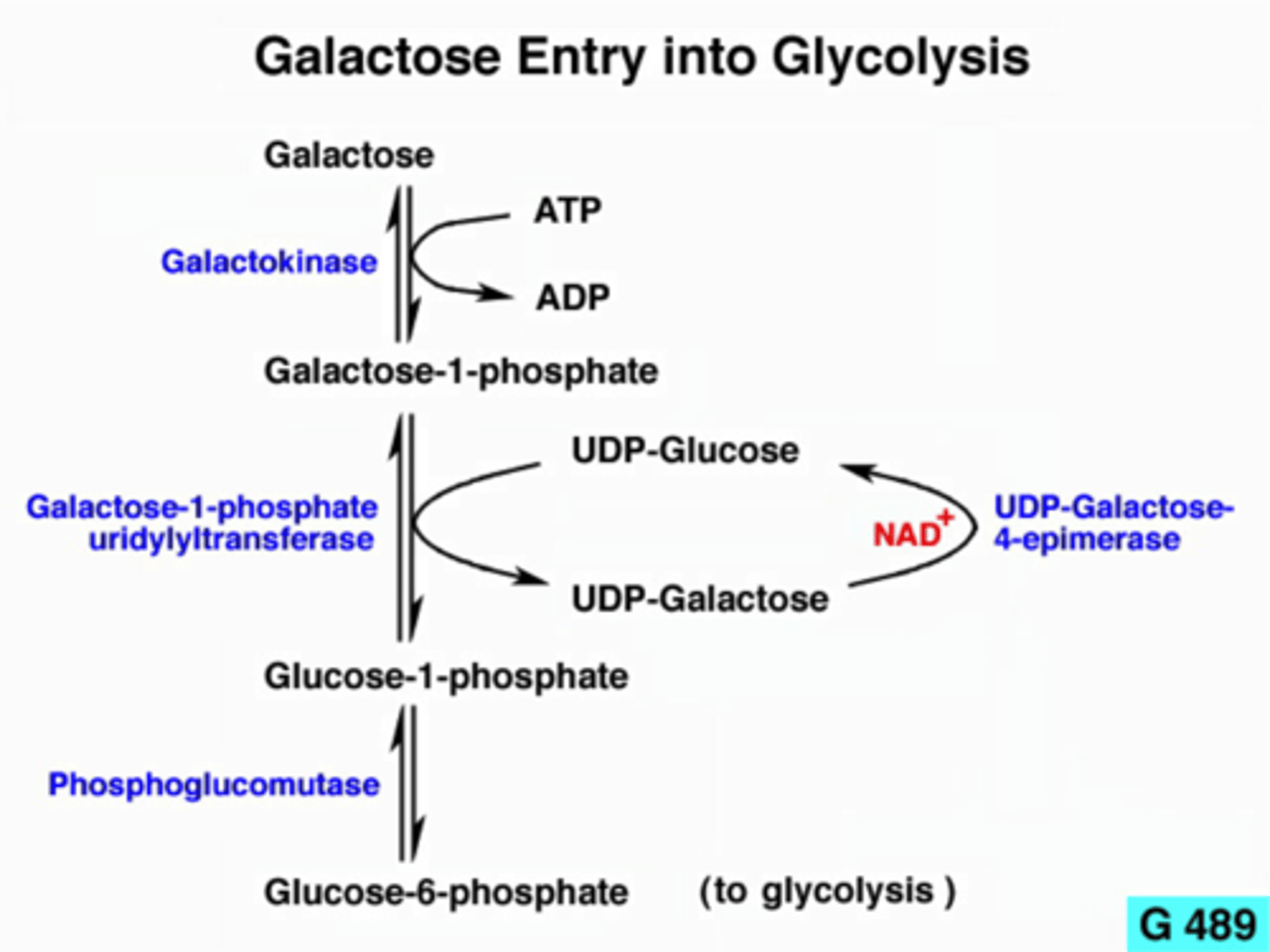
How many steps are there in glycolysis?
10 steps
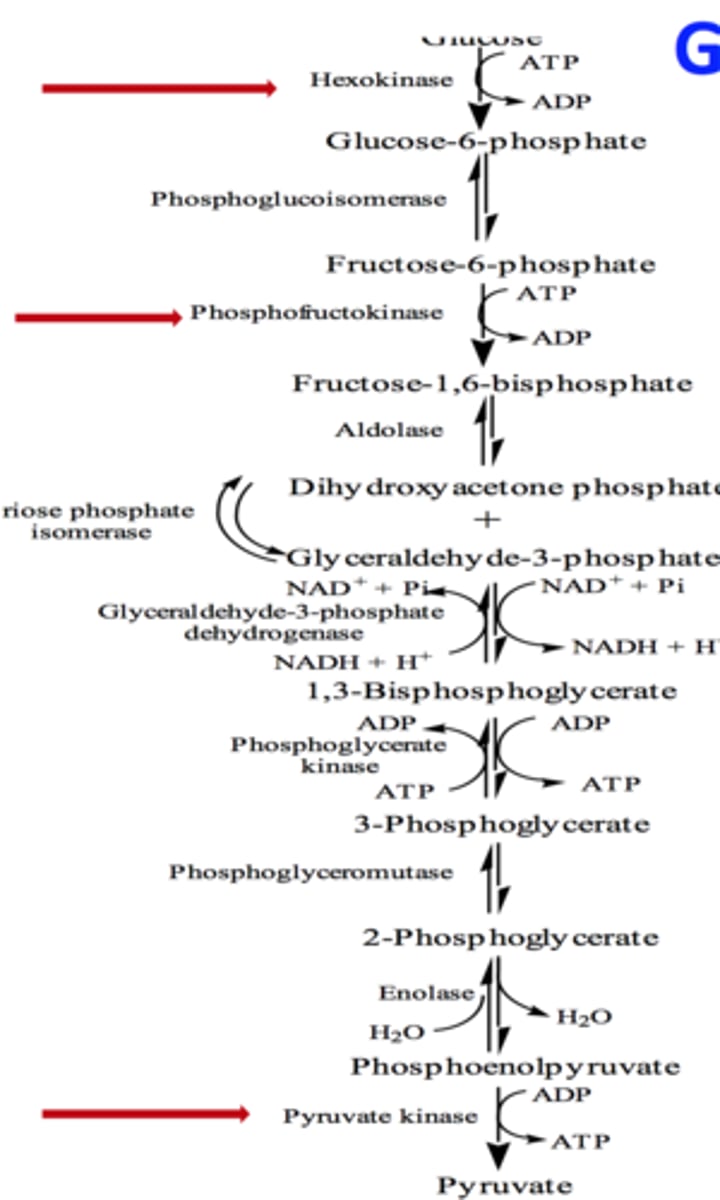
What causes enzymes responsible for glycolysis to be turned on?
Increased concentration of molecules that indicate that energy has been used (AMP, ADP) <-- Used up ATP
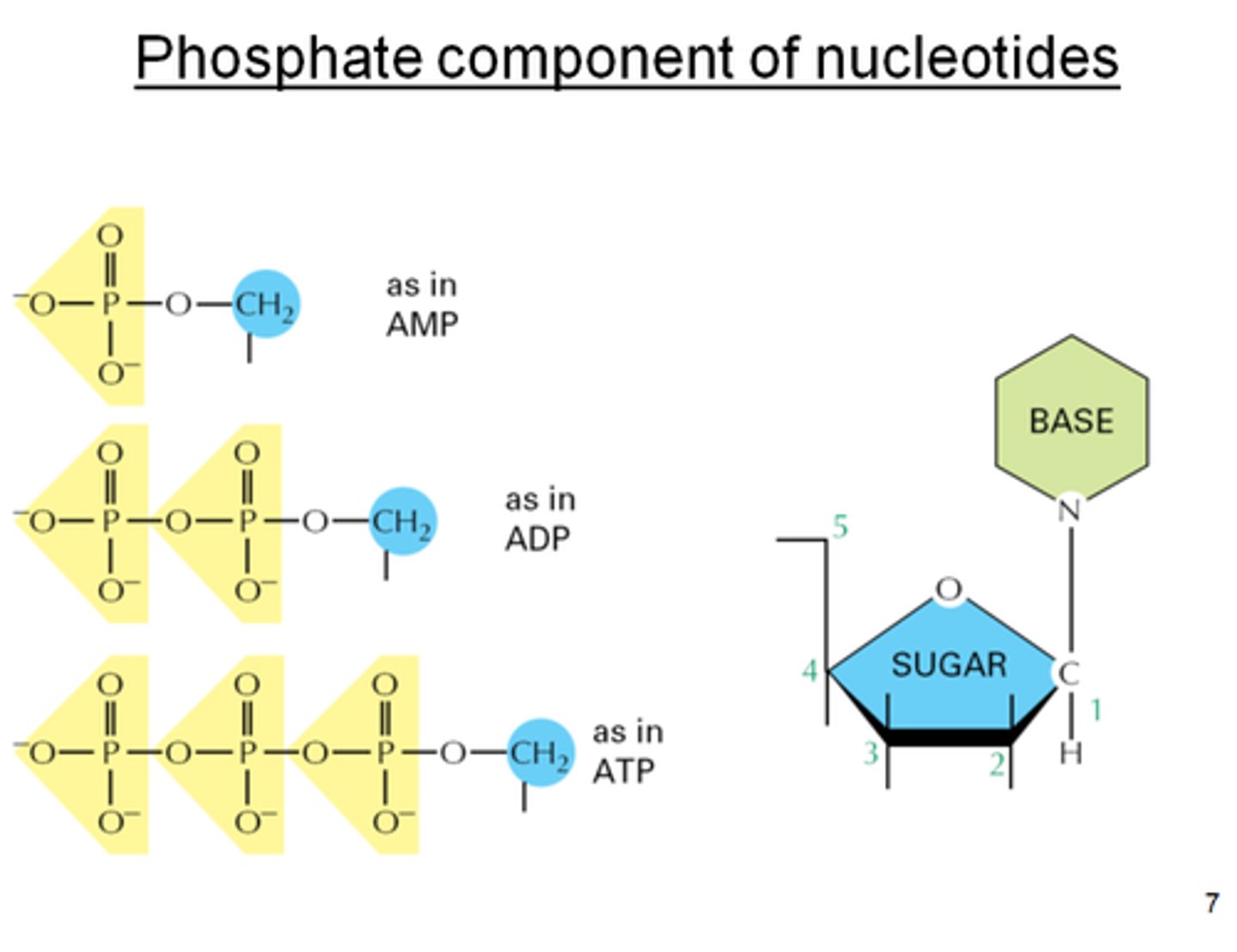
What causes enzymes responsible for glycolysis to be turned off?
Increased concentration of ATP or metabolic products of glycolysis (G6P, citrate, pyruvate -> Acetyl-CoA)
When is the aerobic and anerobic pathway of glycolysis activated?
Aerobic pathway (Pyruvate -> Acetyl Coa) -> Activated in presence of oxygen
Anaerobic pathway (Pyruvate -> Lactate) -> Activated in absence of oxygen
What is the purposes of the anerobic pathway of glycolysis?
1. Able to produce ATP even in the absence of oxygen
2. Able to regenerate NAD+ electron carriers in the absence of them
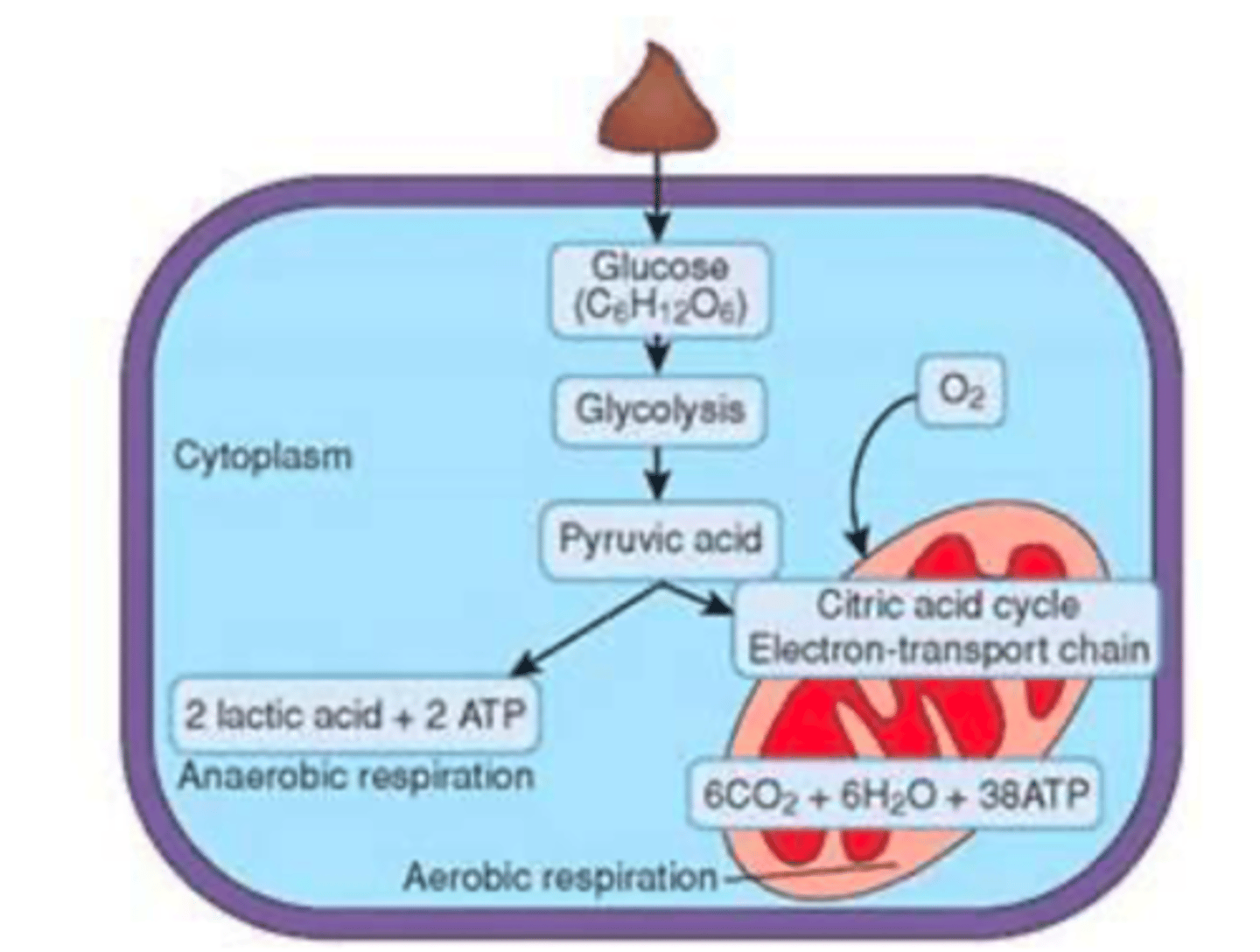
What is generally the cause of metabolic acidosis due to glucose metabolism?
Usually use of ATP (ATP -> ADP + P+ + H+)
Which cells in humans have evolved to use anerobic metabolism and why?
1, RBCs -> responsible for oxygen transport, therefore, it's a good idea if they dont use up that oxygen to generate energy for themselves
2. Eye tissues -> responsible for vision, mitochondria would deflect light
3. Skeletal muscle -> evolved to use anerobic metabolism when energy demand is very high
What happens to lactate after it is produced during anerobic metabolism?
Gets converted back to glucose via gluconeogenesis in the liver using 6 ATP. It is then returned back to the blood where it can be used as energy
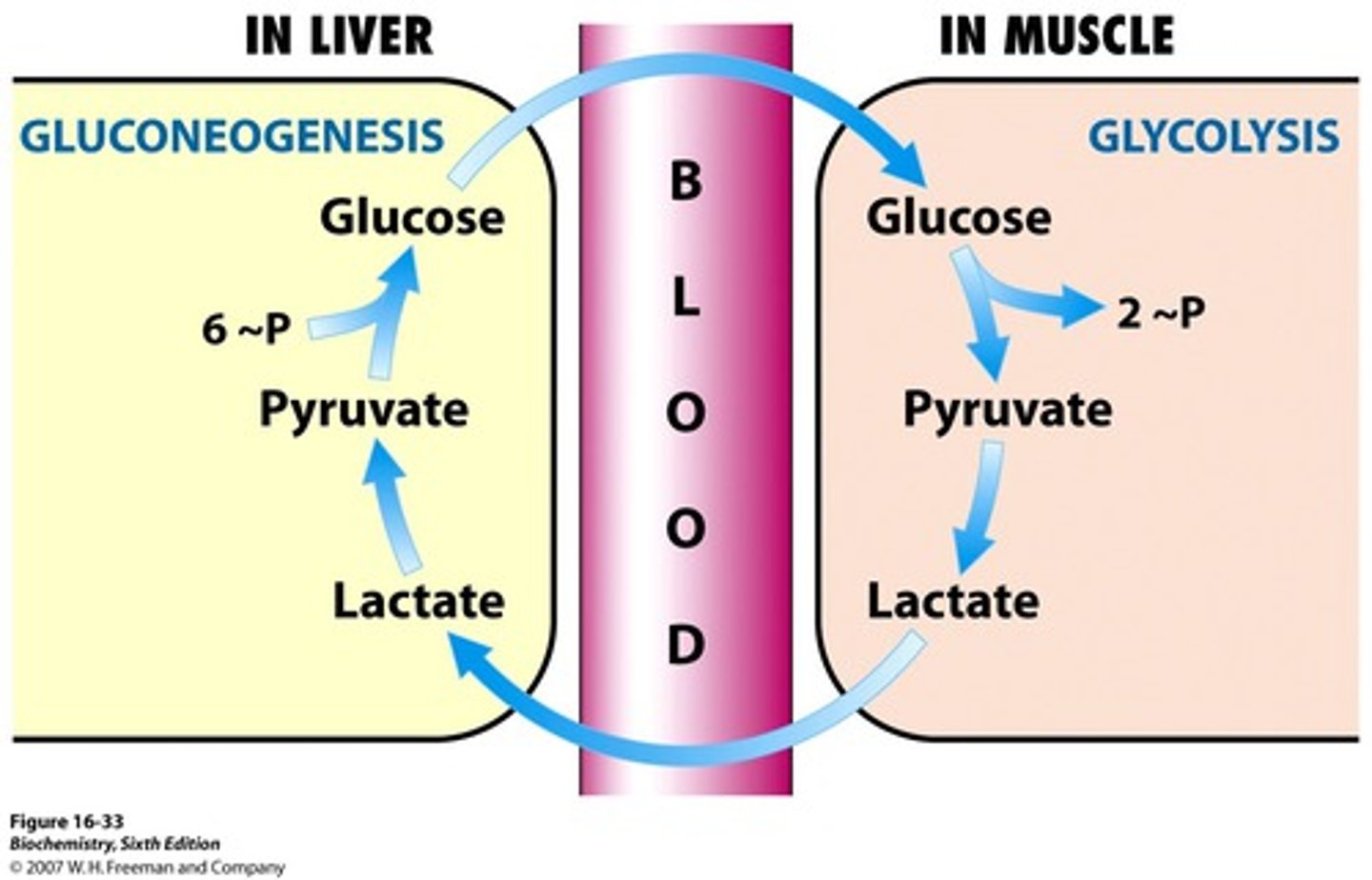
Which pathway produces more ATP, anerobic or aerobic metabolism?
Aerobic metabolism
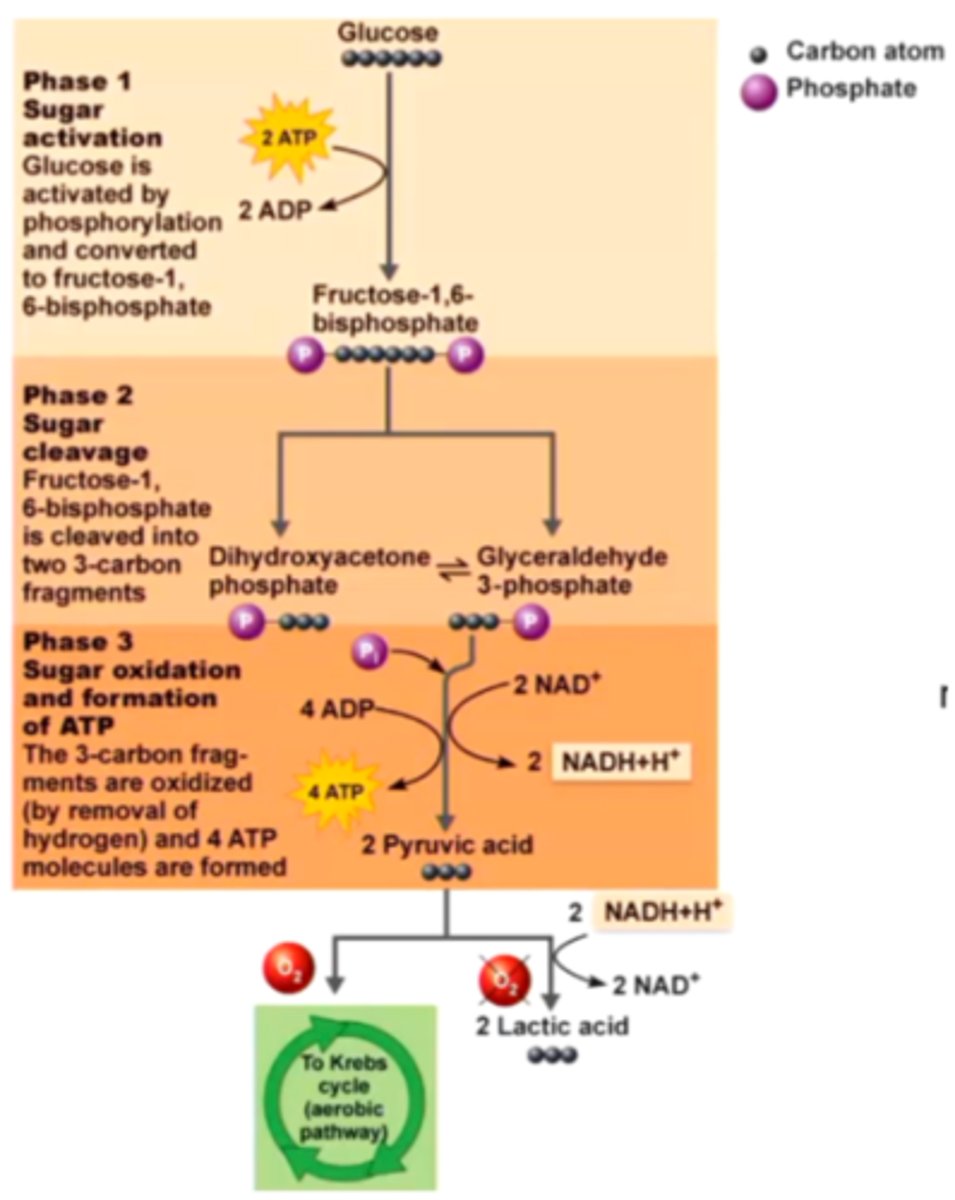
How do cells that rely on anerobic metabolism compensate for the inefficiency of ATP generation?
These cells produce many more enzymes that can perform anerobic metabolism, which increases # of reactions and # of ATP produced
How is lactate a good indicator of poor tissue perfusion?
Lactate is produced by hypoxic cells (lack of oxygen), which means that if there is issue of blood/oxygen being delivered to the tissues (poor tissue perfusion), there will be a greater conc of lactate
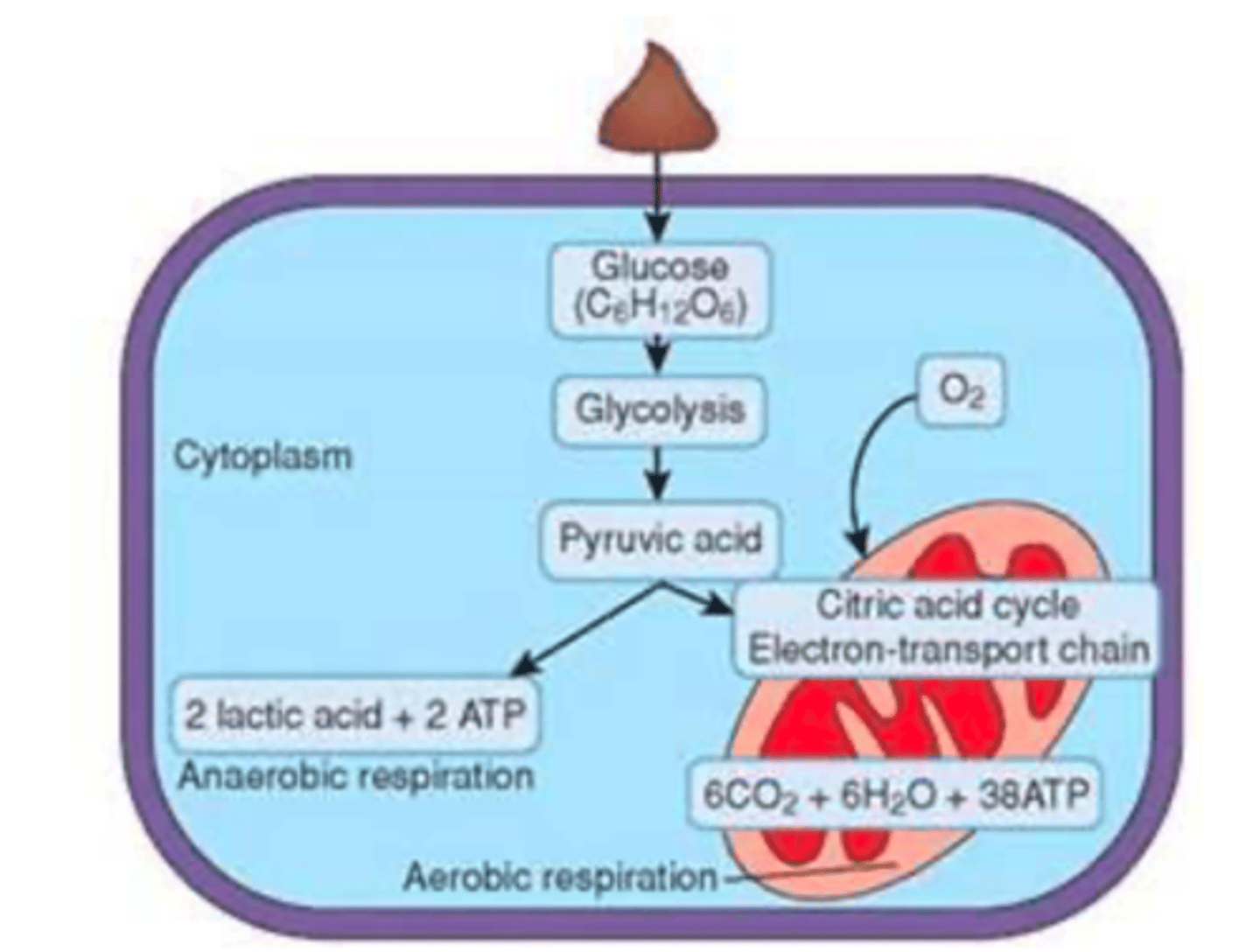
Where does aerobic respiration vs anerobic respiration occur in the cell?
Aerobic respiration -> Mitochondria
Anerobic respiration -> Cytoplasm
